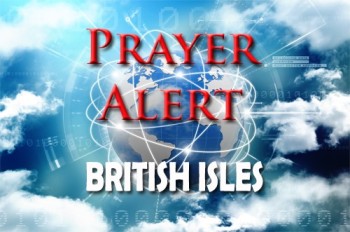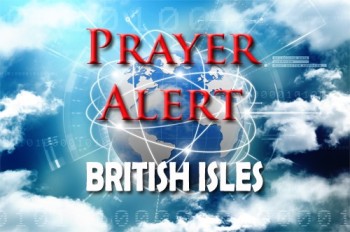Displaying items by tag: United Kingdom
Britain has poor nature connectedness
From the romantic poets to Sir David Attenborough’s research, Britain has a reputation for being a nation of nature lovers. But citizens of this green and pleasant land are ranked bottom of fourteen European nations measured for their ‘nature connectedness’, according to a new study. This is a psychological concept which measures the closeness of an individual’s relationship with other species and the wild world. Studies have found that people with a high level of nature connectedness enjoy better mental health and are more likely to act in environmentally friendly ways. Britain. which has lost more wildlife than any other G7 country, has been shown to be one of the most nature-depleted countries on the planet. Professor Miles Richardson, the lead author of the study, is asking the UN to adopt the concept of nature connectedness as a sustainable target, with 17 sustainable development goals focused on issues for people or for nature.
Asylum in Rwanda: Iranian fears for his life
One of the many refugees destined for Rwanda under a controversial scheme is an Iranian ex-police commander who fears Iranian agents would kill him in Rwanda. Iran's Revolutionary Guard is known for kidnapping and assassinating dissidents in African countries, including Rwanda. He testified via Skype to a tribunal investigating Iranian atrocities during anti-government protests. He was in charge of sixty police officers when he refused to obey orders to shoot protesters during the rallies. He was demoted by Iran’s military court and sentenced to five years in jail. 1,500 men, women and children were killed in the demonstrations. While out on bail pending his appeal he escaped to Turkey and lived in hiding for fourteen months, before fleeing to England in May. Although his face was covered when he gave evidence, Iran's security forces managed to identify him and have persecuted his family who are still living in Iran. See also article 5 in the World section.
Film deemed 'blasphemous' by Muslims
Cineworld has removed a film about Fatima, the daughter of the Prophet Muhammad, from Bradford, Bolton, Birmingham and Sheffield venues, after hundreds of Muslims protested, calling the film blasphemous. Cineworld said that because of incidents outside venues, and for the safety of staff and customers, the screening of 'The Lady of Heaven' will stop. The film opens with the IS invasion of Iraq, showing a jihadist murder, before telling the story of Lady Fatima. The movie's executive producer called Cineworld’s decision ‘unacceptable’ and accused them of 'bowing down to radical extremists'. He said, ‘It is never right to submit to anything that undermines free speech. The only caveat to free speech is if you incite violence either directly or indirectly. If someone doesn’t want to watch something, then don't watch it, that's your freedom. People can’t compel you to watch this film, it doesn’t incite violence, and there is nothing in British law preventing the film being screened in the UK.’
Isolated elderly
There are unseen challenges that people struggle with in later life. Pray for the elderly struggling with eating and living well. May they have a network of caring friends to support them as they find they cannot do the things they used to do, due to limited mobility and shrinking finances. Pray for those impacted by the onset of dementia and trying to maintain their independence in an ever-shrinking world. Pray for the widows and widowers living alone who could be depressed, with no one to share the ups and downs of their days with. Pray for God to raise up people in different generations to come alongside the elderly people in their communities and be befrienders. Pray for anointed and caring people to help older people to understand their purpose in later life. May our aged feel that they remain purposeful in their later years.
12-year-old’s life support to be removed
The mother of 12-year-old Archie Battersbee is ‘devastated’ after a court ruled his life support should be removed. This was because it decided that ‘on the balance of probabilities’ Archie had died. His mother said, ‘Basing judgment on an MRI test that he is likely to be dead is not good enough.’ This is the first time someone has been declared probably dead based on an MRI test. The concept of brain death is discredited if Archie cannot be reliably diagnosed brain-dead. His mother added, ‘The hospital and judge failed to take the wishes of the family into consideration. His heart is still beating, he has gripped my hand, I know he is still in there. Archie has not been given enough time. From the beginning I have thought, “Why the rush?” Until it is God's way I won't accept he should go. I know of miracles when people have come back from being brain-dead.’
Millions targeted by scammers in cost-of-living crisis
Citizens Advice is warning of different cost-of-living tactics used by scammers. Over 75% of UK adults report being targeted by scammers this year, including emails claiming to be from Ofgem asking people to enter their bank details to get the £400 energy rebate, or claiming the government is giving £200,000 at random to pensioners, disabled or on low income. The director of National Trading Standards said, ‘Criminals are exploiting people’s worries as household bills rise. Consumers are put under increasing pressure from waves of scam emails, or imposters cold calling. Legitimate organisations would never put you on the spot in this way.’ Popular scams are people saying they are from postal or courier delivery services, from the government or HMRC with rebates and refunds, online shopping, energy, medical or fake investments.
Church urged to engage in education system
Research by the Times Education Commission condemned ‘shocking’ regional disparities in schools. One primary school reported children starting school unable to say their names; half of reception and nursery were not toilet-trained. There was also a lack of training on how to identify students with special education needs. The Association of Christian Teachers (ACT) called for the Church to play a bigger part in the education system after the report also found that parents do not believe classrooms prepare pupils for life or work and the system places too much emphasis on exams which could damage pupils' mental health. Exams have become a source of emotional stress for teachers and students: some students refuse to even open an exam paper. Christian teachers can emphasise that exams aren’t everything. They have the opportunity to say how trusting God puts worry in perspective, that God has a plan for our lives - even if we feel it all depends on one certain day and one exam.
Students accuse lecturer of sharing Russia war lies
Mariangela Alejandro, a history and politics student, was taught by professor Tim Hayward at Edinburgh University. But a few weeks into the course she complained, ‘He goes from talking about global financial markets and poverty into this realm of conspiracy theories about the Syrian president and Russia.’ Days after a maternity hospital in Mariupol was bombed, Prof Hayward retweeted a Russian ambassador to the UN describing the attack as #fakenews. The tweet said the hospital had been controlled by the Ukrainian military, and no patients were there. In a lecture he outlined an argument that the renowned aid organisation the White Helmets may have helped fake a chemical attack in Syria. Russia has said the attack was staged. In March he and other academics were accused by MPs in the House of Commons of spreading misinformation about the Ukraine war. Education secretary Nadhim Zahawi said the Government would crack down hard on misinformation.
NI Protocol disagreement
Part of Brexit released lorries from checkpoints between the UK and EU (Northern Ireland to Republic of Ireland). Instead they are checked when arriving in NI from mainland UK. This protocol was agreed because of sensitive political border histories. Boris Johnson wants to change this protocol section to make it easier for some goods to move between Britain and NI. But the European Commission vice-president said there was ‘no legal or political justification whatsoever for unilaterally changing an international agreement; it has left us with no choice but to take legal action.’ Mr Johnson insists the proposals are legal, will secure the UK’s future and are set out in a parliamentary bill. The protocol is upsetting the balance of the Good Friday Agreement’. The Democratic Unionist Party, who won the second-most seats in recent elections, is refusing to set up a new ruling Northern Ireland executive with Sinn Féin, who won the most seats, until changes are made to the protocol.
Government prayers
After months of power struggles and accusations, Boris Johnson has said, ‘Let's draw a line under our issues’. The House of Commons and House of Lords both begin their sessions with prayers: may God graciously answer them at this time. The Speaker's Chaplain prays along these lines: ‘God of righteousness and truth, grant our government and MPs your Spirit’s guidance. May they never lead the nation wrongly through love of power, desire to please, or unworthy ideals, but laying aside all private interests and prejudices remember their responsibility to improve the condition of our nation.’ The House of Lords prayer is: ‘Almighty God, You raise up leaders to reign and decree justice. Grant them Your counsel, wisdom, and understanding. Direct and guide all meetings, so that all private interests, prejudices, and partial affections are laid aside. May the result of all our counsel bring glory to Your Name. Lord and be graced with your favour.’ See









